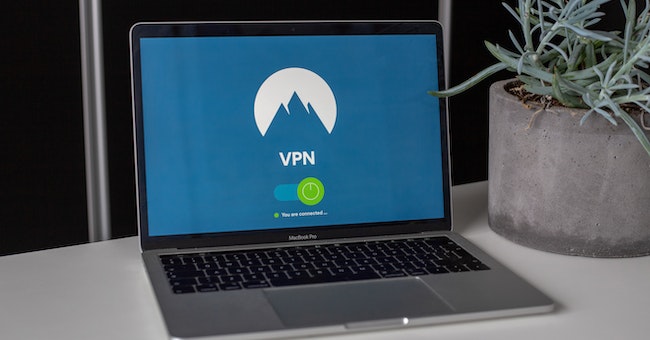Navigating the Digital Realm Safely: A Comprehensive Guide to VPNs

Introduction
In the ever-expanding digital landscape, the need for online security and privacy has become paramount. With cyber threats, data breaches, and surveillance on the rise, individuals and businesses alike are seeking effective tools to safeguard their digital presence. One such tool that has gained significant attention is the Virtual Private Network (VPN). In this comprehensive guide, we will delve deep into the world of VPNs, exploring their importance, functionality, benefits, and how they can empower users to navigate the digital realm securely.
Understanding VPNs - An Overview
A Virtual Private Network, or VPN, is a technology that establishes a secure and encrypted connection between a user's device and a remote server. This connection effectively masks the user's IP address and encrypts their internet traffic, providing an added layer of security and anonymity. VPNs were initially developed for corporate use to allow remote employees to access internal resources securely. However, their applications have expanded, and they are now widely used by individuals seeking privacy, bypassing geo-restrictions, and enhancing security.
The Importance of Online Privacy
In today's digital age, online privacy is a fundamental right that is increasingly threatened by various entities, including cybercriminals, advertisers, and even government agencies. VPNs play a pivotal role in protecting users' online privacy by:
Masking IP Addresses: VPNs hide users' IP addresses, making it difficult for websites and online services to track their online activities.
Encryption: VPNs encrypt internet traffic, ensuring that sensitive data such as passwords, financial information, and personal messages are secure and inaccessible to malicious actors.
Public Wi-Fi Security: When using public Wi-Fi networks, users are vulnerable to cyberattacks. VPNs encrypt data, safeguarding users from potential threats.
Preventing Tracking: VPNs block online trackers and prevent advertisers from monitoring and collecting users' browsing habits.
Benefits of Using VPNs
Beyond privacy protection, VPNs offer a range of additional benefits:
Bypassing Geo-Restrictions: VPNs allow users to access content that may be blocked or restricted in certain regions by connecting to servers located in different countries.
Secure Remote Access: For businesses, VPNs facilitate secure remote access to company resources, enabling employees to work from anywhere while maintaining data security.
Anonymous Browsing: VPNs enable users to browse the internet anonymously, reducing the risk of identity theft and online profiling.
Enhanced Online Security: VPNs can protect users from hackers and malicious software by providing an extra layer of encryption.
How VPNs Work
VPNs employ various technologies to ensure security and privacy:
Encryption: VPNs use encryption protocols to scramble data, making it unreadable to unauthorized parties.
Tunneling: Data is encapsulated in a secure "tunnel" and transmitted between the user's device and the VPN server.
Protocols: Different VPN protocols, such as OpenVPN, L2TP/IPsec, and IKEv2/IPsec, offer varying levels of security and performance.
Server Locations: Users can connect to VPN servers located in different countries, which can provide benefits like bypassing geo-restrictions and accessing localized content.
Selecting the Right VPN
Choosing the right VPN provider is crucial for a secure and reliable experience. Consider the following factors:
Security Features: Look for strong encryption, a no-logs policy, and support for various protocols.
Server Locations: Ensure the VPN has servers in locations that align with your needs, such as accessing geo-blocked content.
Speed and Performance: Opt for a VPN with minimal impact on your internet speed.
Device Compatibility: Check if the VPN supports the devices and operating systems you use.
Customer Support: Reliable customer support is essential for troubleshooting and assistance.
Setting Up and Using a VPN
Getting started with a VPN is relatively straightforward:
Choose a Plan: Select a suitable subscription plan based on your needs.
Download and Install: Download the VPN app for your device and follow installation instructions.
Connect to a Server: Launch the app, choose a server location, and establish a connection.
Verify Connection: Confirm your IP address is masked and your connection is encrypted.
Adjust Settings: Customize VPN settings according to your preferences, such as automatic connection on startup.
VPNs and Data Privacy Regulations
It's important to understand that while VPNs offer privacy benefits, they are not a complete solution. They can be affected by data privacy regulations and may not fully protect against all forms of tracking. Users should stay informed about the legal implications and choose reputable VPN providers that prioritize user privacy.
Recommended Online Resources for VPN
VPN (Virtual Private Network) Explained
Dive into the world of VPNs with the "VPN Explained" course. Understand the inner workings of VPNs, from setup and configuration to troubleshooting. Explore the security and privacy advantages of VPN usage while learning about potential risks. Equip yourself with the knowledge to make informed choices about your online security and privacy.
Course highlights:
Comprehensive VPN Insight: Understand VPNs and their functionality.
Hands-On Setup: Gain practical experience in VPN setup and configuration.
Troubleshooting Skills: Learn to address potential VPN issues effectively.
Security and Privacy Mastery: Expertise in VPN's protective advantages.
Informed Decision-Making: Assess risks and make educated online security choices.
What Is VPN & How Does It Work? VPN Explained In 5 Minutes Virtual Private Network Simplilearn
Gain a comprehensive understanding of VPNs and their functionality. Learn the significance of VPN usage, applications, and cyber security essentials. Acquire foundational to advanced cyber security skills, risk analysis, and compliance expertise. Access industry-leading certification courses, hands-on projects, and a capstone project in three domains. Benefit from Simplilearn's JobAssist for increased visibility to top hiring companies.
Course highlights:
Clear VPN Insight: Comprehensive understanding of Virtual Private Networks.
Practical Cyber Skills: Foundational to advanced security, risk analysis, compliance.
Industry-Leading Certification: Access to top-notch cyber security certification courses.
Hands-On Experience: Engage in 25+ real-world projects.
JobAssist Advantage: Increase visibility with Simplilearn's JobAssist program.
Make a Your Own Free VPN with AWS&Cloud Computing!
Build your own free VPN server using AWS and Cloud Computing. Learn server setup, configuration, and AWS management. Grasp cloud computing essentials to create a secure, reliable VPN server. Gain hands-on experience and expertise in a cost-effective solution.
Course highlights:
DIY VPN Creation: Build a free VPN server using AWS.
Setup and Configuration: Learn to set up and configure VPN.
Cloud Management: Master AWS for server maintenance and management.
Cloud Computing Insight: Understand and leverage cloud computing advantages.
Secure & Reliable VPN: Create your own VPN server for free.
FAQs
Q: Can I use a VPN to bypass geographic restrictions?
A: Yes, VPNs can help you bypass geographic restrictions by allowing you to connect to servers in different countries. This makes it appear as if you're browsing from a different location, granting access to content that might be otherwise blocked.
Q: Are all VPNs the same?
A: No, VPNs vary in terms of server locations, speed, security protocols, privacy policies, and features. It's important to choose a reputable VPN service that meets your specific needs.
Q: Are VPNs legal to use?
A: Yes, VPNs are legal to use in most countries. However, some countries have restrictions on VPN usage, so it's important to be aware of local regulations before using a VPN.
Q: Are my activities completely private with a VPN?
A: While a VPN enhances privacy by encrypting your data and masking your IP address, it's important to note that your VPN provider may still have access to your online activities. Choosing a VPN with a strict no-logs policy is essential for maintaining privacy.
Q: Can I use a VPN on all my devices?
A: Yes, most VPN providers offer apps or setup guides for a wide range of devices, including computers, smartphones, tablets, and routers.
Conclusion
In an increasingly interconnected world, where digital threats and privacy concerns are pervasive, VPNs serve as a powerful tool for individuals and businesses seeking to fortify their online presence. By masking IP addresses, encrypting data, and providing access to a global network of secure servers, VPNs empower users to navigate the digital realm with confidence. Whether it's safeguarding personal information, accessing restricted content, or ensuring secure remote work, the benefits of VPNs are substantial. As technology continues to evolve, integrating a VPN into your digital routine is a proactive step towards a safer and more private online experience.





